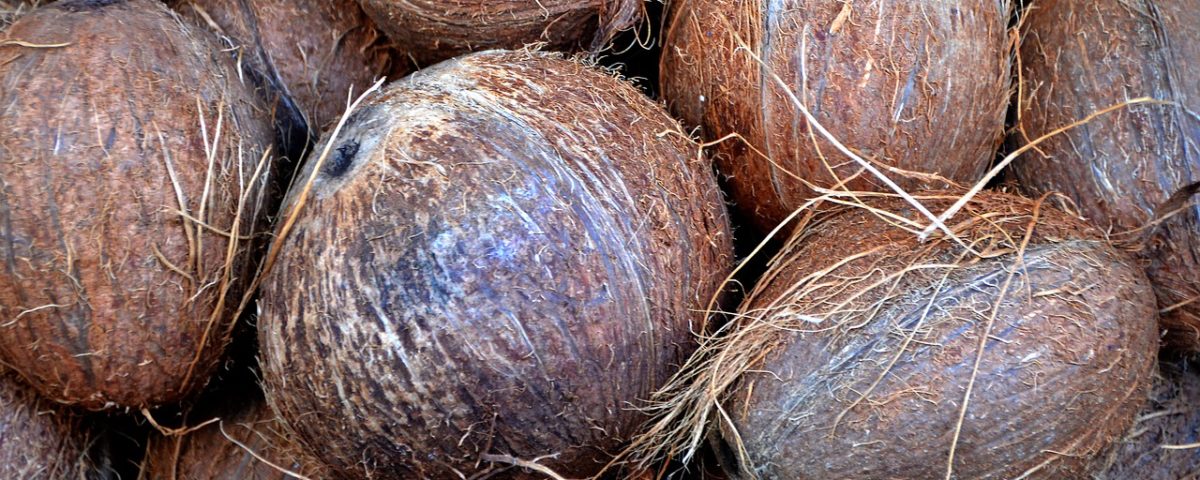
Why You Should Use More Native Plants in Your Landscape
December 27, 2018
Minimizing Water Waste in Your Garden
December 28, 2018Choosing a Growing Medium
As a gardener, you know that you can’t simply put a plant in the ground and expect it to thrive. Specialized planting soil, topsoil, and ground cover can all be used in combination to help your garden grow. When it comes to choosing planting mediums for your garden, there are many products on the market. One product you may consider experimenting with is coconut husk. Read on to learn more about how growing professionals and casual gardeners alike can benefit from using coconut byproducts.
What Are Coconut Husk Products?
Although byproducts from coconut husks have been used by gardeners for decades, many people are still not familiar with coconut-derived growing materials. The process of husking the fibrous portion of the coconut, known as coco coir, dates back to the 1980s. Back then, commercial flower growers found coconut coir allowed the roots of roses and other flowering plants to thrive. Since then, gardening with coconut husk products has grown in popularity. However, despite all of its benefits, coconut coir is still unknown to many home gardeners and professional landscapers.
Benefits for Home Gardeners
When visiting your local landscaping supply store, you’ll find that you have many different planting mediums to choose from, each with its own list of benefits. There are several factors you want to consider when choosing the right product for your plants such as drainage, nutrient density, and acidity level. Your planting medium is very important, so you don’t want to make a decision based on price alone. Coconut coir-based products have many desirable qualities that home gardeners look for including:
Water Retention
One of the main reasons why coconut coir makes for such a great growing medium is it’s natural ability to retain moisture for long periods of time. There are other planting products that do an equally good job at retaining water, however, what makes coconut husk-based products so unique is that the natural fibers are able to retain moisture without suffocating plants.
Aeration
Fibrous coconut coir expands in such a way that it allows for great aeration for the roots of your plants. Some planting materials tend to become too compact around plants, causing them to suffocate over time. However, coconut husk products allow oxygen to flow freely around plant roots, which help maintain the health of your plants, ultimately allowing them to grow larger, faster.
Sustainable
There are many growing mediums on the market that are simply not eco-friendly. However, coconut husk products are a smart choice if you’re looking to limit your environmental impact. That’s because coconuts are an easily renewable resource. In fact, a single coconut tree is able to produce upwards of one hundred and fifty coconuts per year. That means that producers of coconut coir products can rely on a constant supply of raw materials each year. Plus, coconut trees typically do not require the use of pesticides and other chemicals to maintain their health. When you purchase coconut-based products you can rest easy knowing that you’re making an environmentally responsible choice.
Naturally pH Balanced
As you begin to delve into more advanced gardening techniques, you will probably start looking at monitoring the acidity level of your soil and growing mediums. Certain plants are very sensitive to changes in the pH levels of their soil. Some growing mediums that you purchase off the shelf at your local landscaping supply store may be far too acidic for your plants. If the pH of your soil isn’t at the optimum level, your plant may fail to thrive or even die, no matter how much care you take to water and fertilize it. However, this is not a concern with you use coconut coir as your planting medium. That’s because coco coir has a natural pH of about 5.2 to 6.8. This is nearly neutral on the pH scale, making it ideal for lots of plants without the need for additives.
Nutrient Density
There are many vital nutrients that are naturally found in coconut byproducts. These include potassium, iron, manganese, copper, and zinc. These nutrients are very beneficial plants. One of the great things about coconut coir is that it releases these nutrients very slowly, so it will feed your plants on an ongoing basis over time. What’s more, coconut coir is also rich in natural hormones that act as bio-stimulants, encouraging your plants to flourish.
Beneficial Bacteria
You may think of bacteria as a bad thing, however, certain types of bacteria are beneficial to plants. Coconut coir has been proven to promote the growth of lignins, increasing the among of beneficial bacteria around your plant’s root systems. This beneficial bacterium serves to combat harmful bacteria that may harm your plants. This is one reason why coconut coir is so popular amongst hydroponic growers.
Cost Effective
Because coconut husk products take a very long time to break down and release their beneficial nutrients slowly, gardeners can go a long time without replacing their growing medium. In addition, coconut coir’s natural ability to retain moisture will help you save on your water bill. Compared to other growing mediums, coconut coir products are not the most expensive but are also not the least. However, these moderately-priced products
Best Uses
Potting Medium
Coconut coir is a wonderful growing medium for hydroponic applications, container gardens, and pots. Coco coir is also great for indoor plants, especially for soiless planting. Coconut husk-based products can be purchased in ready-to-use bags, or in breaks that expand when soaked in water.
Ground Cover
Coconut coir mulch or coco chips are great for use outdoors as ground cover. Coco products do a great job of retaining moisture and surpassing the growth of weeds. In addition, your shrubs and other outdoor plants will benefit from the additional nutrients that are released from your coconut coir ground cover.
Do you want to learn more about how to use coconut-based products in your garden? Visit us today and one of our helpful associates can help you decide if coconut-based products are right for you!


